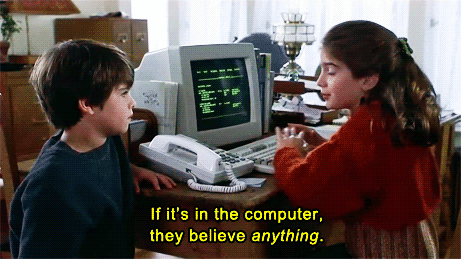Marketing as a career field has evolved rapidly in the last decade in conjunction with the rapid evolution of digital technology and utilisation of data collection technology. Job titles such as social media experts and web app developers would have resulted in some quizzical looks in the 90’s but are now wide spread and valuable career paths for the 21st century marketer. As new technology comes to fruition it is up to marketers to re purpose, allowing it to be effectively implemented into the market, benefiting both firms and consumers alike in the art of selling and buying.

In the 1990’s, speculation of the “internet’s” ability to influence marketer’s activity was wide spread, and some were quite accurate, others not quite. Exploring the Implications of the Internet for Consumer Marketing in 1997 predicted the impeding ubiquitous nature of the internet and its permeation into every aspect of our lives, from contact with family to the growth of digital goods with no physical copy. Other’s believed that the digital could never replace the mighty CD or physical newspaper. We have well and truly fulfilled many of these predictions, but now it’s time to figure out what’s next.
As the growth of raw data continues to balloon, with an estimated 44 zettabytes (44 trillion gigabytes) of data being created by 2020 the ability of us as marketers to interpret and utilise all this is becoming increasingly complex, but with the assistance of massively increased computation power and innovative algorithms the efficiency of interpreting is getting better every day. We rely so heavily on processors to sort through and analyse big data that without it we are left with a useless mass of numbers. Time see’s us relying more and more on it, so how long until we leave it solely up to programs to operate, let the machines take control.

The utilisation of a learning machine or artificial intelligence is increasingly becoming a likelihood to handling the complex analytical tasks that we are now faced with. The possibility of AI is both exciting and daunting, whilst still a theoretical concept from the science fiction world, it has been hypothesised as the next big technological revolution and could completely alter how marketing operates in the future.
Already companies such as Conversica and Kahuna offer automated ‘artificial intelligence’ software to generate marketing activities with no human interaction. Calling it an ‘intelligence’ is somewhat of an exaggeration, it has essentially created a system that sends personalised direct marketing material to millions of individuals autonomously, however it is the adaptive nature of these systems that is the most startling, baby steps to true intelligence, as they learn from responses and adjust messages to increase consumer response rates. This has seen Kahuna’s response rate rise to 21%, far exceeding typical automatic direct marketing responses of 1% and growing interest in the area of automated marketing activities.
Many prominent individuals in the technological community are calling for caution on the area of artificial intelligence, Bill Gates, Elon Musk and Steve Wozniak have all expressed concern on the potential rise of the robots. As technology continues to take such drastic steps, moral and ethical questions will need to be asked.
This trend towards automated marketing activities could very well be the next big step in the digital marketing sphere, reaching a point where programs don’t make our jobs easier, they just make them redundant.
Are you concerned about the future implications of artificial intelligence? Or just looking forward to having your own AI?
